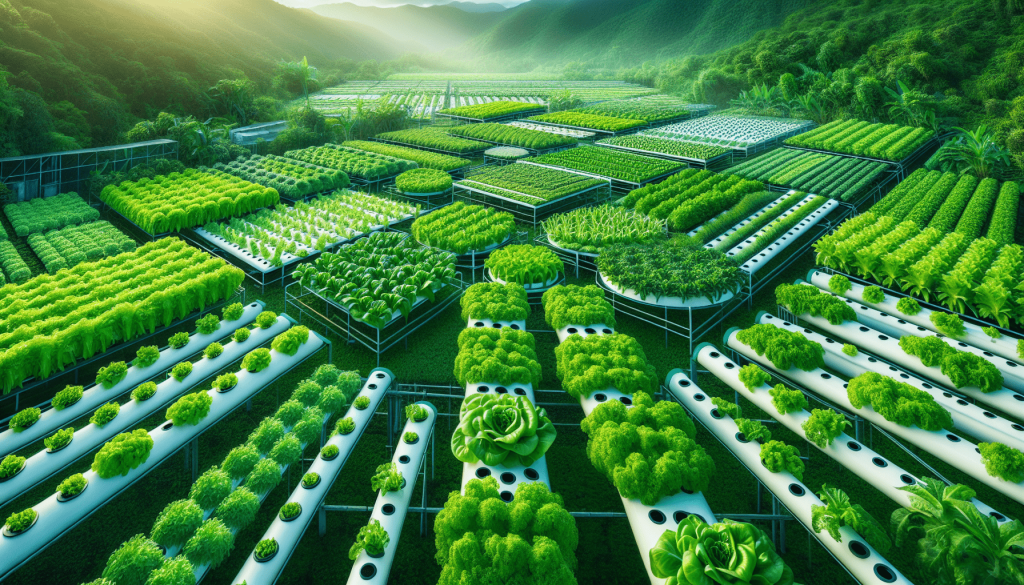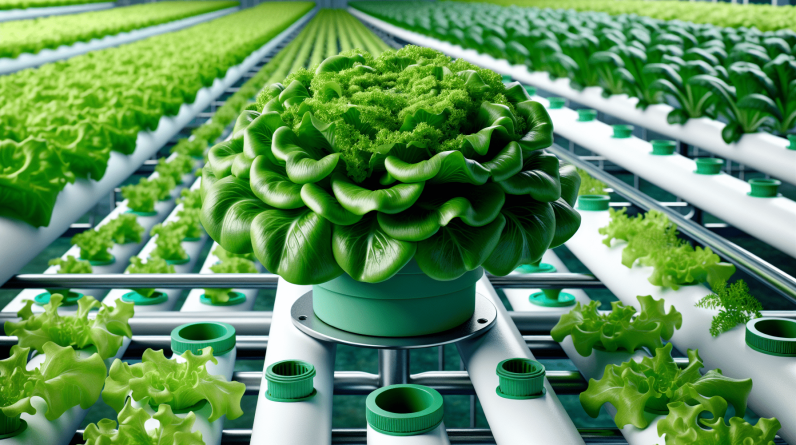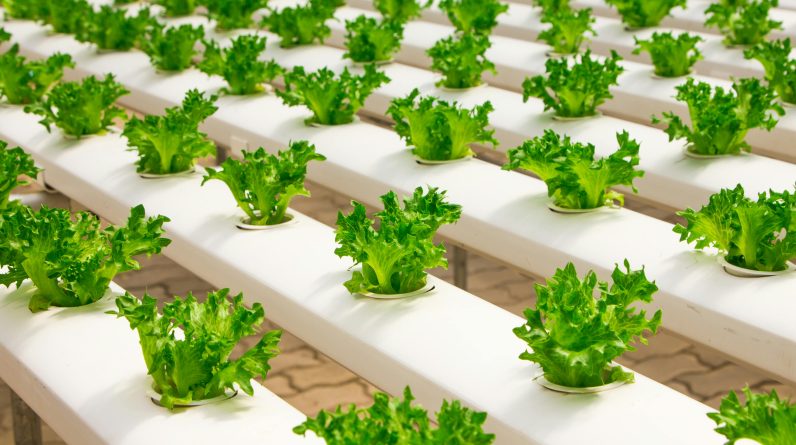

The Advantages of Hydroponic Farming
When it comes to hydroponic farming, the benefits are truly remarkable. Not only does this innovative method save water, but it also significantly boosts crop yield. By providing plants with the necessary nutrients directly to their roots, hydroponic systems ensure that plants grow faster and produce more fruits and vegetables. This sustainable approach to farming eliminates the need for soil, reducing water consumption by up to 90% compared to traditional gardening methods.
Faster Growth and Higher Yields
With hydroponics, you can expect your plants to grow at an accelerated rate and produce a larger harvest. By delivering nutrients directly to the roots in a controlled environment, plants can focus their energy on growth rather than searching for nutrients in the soil. This results in increased productivity and higher yields, making hydroponic farming an attractive option for farmers and gardeners looking to maximize their crop output.
Water Conservation
One of the most significant advantages of hydroponic farming is its ability to conserve water. Traditional soil-based gardening requires copious amounts of water to keep plants hydrated and nourished. In contrast, hydroponic systems use a closed-loop design that recirculates water and nutrients, minimizing wastage and promoting efficiency. With water scarcity becoming an increasingly pressing issue, adopting hydroponics can help reduce agricultural water usage and promote sustainable farming practices.
Year-Round Cultivation
Another benefit of hydroponic farming is the ability to cultivate crops year-round, regardless of external weather conditions. By providing plants with a controlled environment indoors, hydroponic systems eliminate the reliance on seasonal changes for optimal growth. This ensures a consistent and reliable food supply, making hydroponic farming an attractive option for regions with harsh climates or limited arable land.
How Hydroponics Saves Water
Understanding how hydroponic farming saves water is essential for appreciating its environmental and economic benefits. Traditional agriculture is known for its high water consumption, with irrigation practices accounting for a significant portion of total water usage. In contrast, hydroponics offers a more efficient and sustainable approach to water management, reducing waste and promoting conservation.
Water Recycling
One of the primary ways hydroponic farming saves water is through its water recycling system. In traditional soil-based gardening, water is often lost to evaporation, runoff, or seepage, resulting in inefficient irrigation practices. Hydroponic systems, on the other hand, use a closed-loop design that recirculates water and nutrients, minimizing waste and maximizing efficiency. This not only saves water but also reduces the need for frequent irrigation, leading to overall water conservation.
Precision Irrigation
Another water-saving feature of hydroponic farming is precision irrigation. By delivering water and nutrients directly to the roots of plants, hydroponic systems ensure that every drop of water is used efficiently. This targeted approach to irrigation eliminates overwatering and reduces water wastage, making hydroponics an environmentally friendly and water-efficient farming method. With precise control over watering schedules and nutrient delivery, hydroponic farmers can optimize resource usage and minimize water consumption.
Drought Resistance
Hydroponic farming offers inherent drought resistance, making it a viable option for regions facing water scarcity or unpredictable weather patterns. By providing plants with a consistent and reliable water supply, hydroponic systems can thrive in arid climates where traditional agriculture may struggle. This resilience to drought conditions not only ensures crop survival but also promotes water conservation and sustainable farming practices in water-stressed regions.

Boosting Crop Yield with Hydroponics
In addition to water savings, hydroponic farming is also known for its ability to boost crop yield significantly. By optimizing nutrient delivery and creating an ideal growing environment for plants, hydroponic systems can maximize productivity and enhance the quality of fruits and vegetables produced. This increased yield can have a profound impact on food security, economic profitability, and environmental sustainability.
Nutrient-Rich Solutions
One of the key factors that contribute to higher crop yield in hydroponic farming is the use of nutrient-rich solutions. By providing plants with a balanced mix of essential nutrients directly to their roots, hydroponic systems ensure that plants have everything they need to grow and thrive. This optimized nutrient delivery results in healthier plants, increased growth rates, and higher yields, making hydroponics a preferred farming method for maximizing crop productivity.
Controlled Environment
Another factor that contributes to increased crop yield in hydroponic farming is the controlled environment in which plants are grown. By eliminating external factors such as pests, diseases, and adverse weather conditions, hydroponic systems create an ideal growing environment that promotes plant growth and development. This controlled setting allows farmers to optimize growing conditions, monitor plant health, and adjust nutrient levels as needed, resulting in higher crop yield and quality.
Vertical Farming
A growing trend in hydroponic farming is vertical farming, which involves stacking multiple layers of plants vertically to maximize space and increase crop yield. By utilizing vertical space efficiently, hydroponic farmers can grow more plants in a smaller footprint, making the most of limited land resources. This innovative approach to farming not only boosts crop yield but also enhances resource efficiency, making hydroponic vertical farming a sustainable solution for urban agriculture and food production.

Sustainable Agriculture with Hydroponics
As the world faces mounting challenges related to food security, water scarcity, and environmental degradation, sustainable agriculture practices are becoming increasingly important. Hydroponic farming offers a sustainable and efficient approach to food production, addressing key issues such as water conservation, crop yield optimization, and environmental stewardship. By adopting hydroponics, farmers and gardeners can contribute to a more sustainable and resilient food system that meets the needs of future generations.
Reduced Chemical Inputs
One of the environmental benefits of hydroponic farming is the reduced reliance on chemical inputs such as pesticides and fertilizers. By creating a controlled growing environment that minimizes the risk of pests and diseases, hydroponic systems eliminate the need for harmful chemicals that can pollute soil and water resources. This reduction in chemical inputs not only protects the environment but also enhances food safety and promotes healthier eating habits among consumers.
Soil Conservation
Another advantage of hydroponic farming is the preservation of soil resources. Traditional agriculture practices often involve tilling, which can lead to soil erosion, degradation, and loss of arable land. Hydroponic systems eliminate the need for soil, protecting vital land resources and promoting sustainable land use practices. By growing plants without soil, hydroponic farmers can reduce soil erosion, conserve soil fertility, and minimize the environmental impact of agriculture on ecosystems.
Energy Efficiency
Hydroponic farming offers energy-efficient solutions for food production, making it an attractive option for sustainable agriculture. By utilizing technologies such as LED lighting, solar power, and automated climate control systems, hydroponic systems can reduce energy consumption and carbon emissions associated with food production. This energy efficiency not only lowers operational costs for farmers but also reduces the environmental footprint of agriculture, contributing to a more sustainable and climate-resilient food system.

Conclusion: Embracing Hydroponic Farming for a Sustainable Future
In conclusion, hydroponic farming offers a plethora of benefits that make it a compelling choice for modern agriculture. From water conservation to crop yield optimization, hydroponic systems provide a sustainable and efficient approach to food production that addresses key challenges faced by the agricultural industry. By embracing hydroponics, farmers and gardeners can contribute to a more sustainable and resilient food system that ensures food security, environmental stewardship, and economic prosperity for future generations. So, if you’re looking to save water, boost crop yield, and embrace sustainable agriculture, consider trying hydroponic farming for a greener and more prosperous future.










